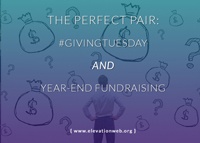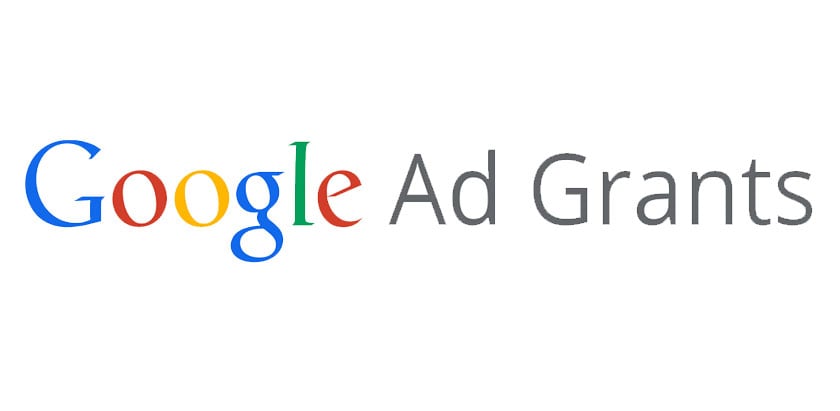In today’s digital age, online marketing has become an indispensable tool for nonprofits to achieve their goals. When it comes to nonprofit organizations, one of the most crucial aspects is attracting donations. Thankfully, there are specific strategies and platforms that can help nonprofits effectively boost their fundraising efforts. In this blog entry, we will explore how nonprofits can leverage Google Ad Grants, social media (both paid and organic), and SEO techniques to enhance their visibility, engage with their audience, and ultimately increase donations.
Download our Marketing Plan Checklist
Supercharge Your Nonprofit’s Visibility (and Donations) with Google Ad Grants
Google Ad Grants is a program that offers eligible nonprofits a free advertising budget to promote their cause. Here’s how nonprofits can leverage this program to increase donations:
- Increased visibility: By utilizing Google Ad Grants, nonprofits can significantly improve their visibility in search engine results pages (SERPs), driving more qualified traffic to their website. Increased visibility translates into greater exposure to potential donors.
- Targeted campaigns: Google Ad Grants allows nonprofits to run targeted campaigns that reach specific audiences interested in their cause. This ensures that the advertising efforts are focused on the right people, increasing the chances of attracting potential donors.
- Optimized landing pages: To maximize the impact of Google Ad Grants, it is essential for nonprofits to optimize their landing pages for conversions. Clear calls-to-action, compelling content, and streamlined donation processes are crucial in guiding visitors towards making donations.
- Ad extensions: Nonprofits should make use of ad extensions, such as sitelink extensions, callout extensions, and call extensions, to enhance the visibility and engagement of their ads. These extensions can direct users to specific donation pages, highlight key benefits or incentives, and enable direct contact with the organization.
- Conversion tracking: Implementing conversion tracking allows nonprofits to measure the effectiveness of their donation campaigns. By tracking the number of donations, donation amounts, and other valuable actions, nonprofits can gain valuable insights and make data-driven optimizations.
Try our AI-powered platform and write your own ad for Google Grant!
Unlock the Power of SEO: Skyrocket Your Organic Visibility and Drive Engaged Audiences
Search Engine Optimization (SEO) plays a vital role in driving organic traffic and engagement for nonprofits. Here’s how nonprofits can leverage SEO to increase donations:
- Increased organic traffic: By optimizing their website’s content and structure, nonprofits can improve their organic search rankings. This results in increased visibility and attracts individuals actively seeking opportunities to support causes they care about.
- Content optimization: Nonprofits should create informative blog posts, impact stories, and resources related to their mission. By providing valuable content, they can establish themselves as an authoritative source and inspire trust among potential donors.
- Local SEO: Nonprofits should include location-specific keywords in their content, meta tags, and page titles to enhance visibility in local search results. Registering the nonprofit on Google My Business and other local directories further boosts local search rankings. Encouraging donors to leave reviews and ratings can positively impact visibility.
- Optimized donation landing pages: Nonprofits should create dedicated landing pages for donation campaigns and optimize them for search engines. This includes using compelling headlines, persuasive copy, clear calls-to-action, and ensuring mobile-friendliness. Trust signals like security badges and testimonials help build credibility.
Ignite Passion and Rally Support: Unleashing the Potential of Social Media Engagement
Social media platforms provide nonprofits with a powerful tool to engage with their audience, share impactful stories, and inspire donations. Here’s how nonprofits can make the most of social media:
- Storytelling and impact sharing: Nonprofits should leverage social media platforms to share powerful stories, success stories, and impact stories that emotionally connect with their followers. Visual content, videos, and testimonials can be shared to illustrate the organization’s work and encourage donations.
- Call-to-action campaigns: Social media platforms like Facebook and Instagram offer features like donate buttons, fundraising events, and crowdfunding campaigns. Nonprofits should leverage these tools to launch specific fundraising campaigns with clear calls-to-action, making it easy for followers to contribute.
- Establish a strong brand presence: Nonprofits should strive to create a consistent and compelling brand presence across social media platforms. This includes using visually appealing graphics, compelling captions, and engaging with followers regularly to foster a sense of community.
- Encourage user-generated content: Nonprofits can encourage their supporters to create and share their own content related to the cause. User-generated content fosters engagement, spreads awareness, and inspires others to donate.
- Monitor and measure results: Regularly monitoring social media analytics is crucial to understanding which content resonates with the audience and drives engagement. By tracking metrics such as reach, engagement, link clicks, and conversion rates, nonprofits can optimize their social media strategy and refine their campaigns.
Level up your social media game with #hashtags: Read our blog post The Power of Hashtags on Social Media!
Crack the Code of Success: Discover the Full Potential of Google Analytics for Data-Driven Triumph
To track donations and gain valuable insights into fundraising efforts, nonprofits should utilize Google Analytics and its Goal Tracking and E-commerce Tracking features. Here’s how GA4 can help nonprofits measure success:
- Goal Tracking: Set up specific goals in GA4, such as completing a donation form or reaching a donation confirmation page. This enables nonprofits to monitor how many users successfully complete these actions and measure the conversion rate of their donation process.
- E-commerce Tracking: For nonprofits selling merchandise or event tickets, GA4’s e-commerce tracking allows them to track revenue generated from these sales and identify the most effective marketing campaigns or channels.
- Conversion Funnel Analysis: GA4 provides a visualization of the conversion funnel, revealing the steps users take on the website leading up to a donation. By analyzing this funnel, nonprofits can identify areas where users drop off and optimize those pages or steps to improve the donation conversion rate.
Nonprofits can harness the power of online marketing to boost their donations effectively. By utilizing Google Ad Grants, implementing SEO best practices, and leveraging social media platforms, nonprofits can increase their visibility, engage with their audience, and inspire donations. Tracking and measuring success through tools like Google Analytics enable nonprofits to refine their strategies and continually enhance their online presence. With a well-rounded online marketing approach, nonprofits can thrive and make a significant impact on the causes they serve.
Check the ultimate Google Analytics guide for Nonprofits
Unlocking Insights and Maximizing Impact: Elevating Impact with Integrated Donation Platforms
To truly understand the impact of their marketing efforts and measure the effectiveness of their strategies, nonprofits should integrate their donation platform with their analytics tools. By doing so, they can gain a holistic understanding of their data and see how their marketing initiatives, including Google Ad Grants, social media campaigns, and SEO efforts, are helping them achieve their goals.
- Comprehensive Data Analysis: Integrating the donation platform with analytics tools, such as Google Analytics, provides nonprofits with a comprehensive view of their data. They can track and analyze key metrics like donation amounts, conversion rates, donor demographics, and the source of donations. This allows nonprofits to identify trends, patterns, and insights that can inform their marketing strategies and decision-making processes.
- Attribution Modeling: Integrating the donation platform enables nonprofits to implement attribution modeling, which helps them understand the contribution of each marketing channel in driving donations. By assigning value to different touchpoints along the donor’s journey, nonprofits can determine which channels or campaigns have the greatest impact on their fundraising efforts. This information allows them to allocate resources more effectively and optimize their marketing strategies accordingly.
- Donor Segmentation: Integrating the donation platform with analytics tools enables nonprofits to segment their donors based on various criteria, such as donation frequency, donation amount, or engagement level. This segmentation helps nonprofits personalize their communication and tailor their marketing efforts to specific donor segments. By understanding the preferences and behavior of different donor groups, nonprofits can create targeted campaigns that resonate with each segment, ultimately increasing donor engagement and donations.
- Identifying Opportunities and Challenges: By integrating their donation platform with analytics tools, nonprofits can identify both opportunities and challenges in their fundraising efforts. They can uncover the most successful campaigns, channels, or landing pages that generate the highest conversion rates and optimize them further. Simultaneously, they can identify areas where they might be losing potential donors or facing bottlenecks in the donation process. With this information, nonprofits can make data-driven optimizations to remove obstacles and streamline the donation experience, thereby maximizing their fundraising potential.
- Data-Driven Decision Making: Integrating the donation platform with analytics tools provides nonprofits with accurate and up-to-date data to make informed decisions. They can measure the impact of their marketing initiatives and adjust their strategies based on real-time data insights. Nonprofits can determine which campaigns, keywords, social media platforms, or SEO techniques are driving the most significant results and focus their efforts accordingly. This data-driven approach empowers nonprofits to allocate resources effectively, optimize their marketing channels, and make informed decisions to drive long-term growth and increase donations.
Integrating the donation platform with analytics tools is crucial for nonprofits to gain a holistic understanding of their data and evaluate the effectiveness of their marketing strategies. By leveraging this integrated data, nonprofits can identify trends, attribute the impact of various marketing channels, personalize their communication, optimize campaigns, and make data-driven decisions. This comprehensive approach ensures that nonprofits maximize their online marketing efforts, enhance their fundraising potential, and ultimately achieve their goals of making a meaningful impact in their communities and causes.



